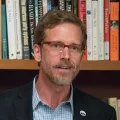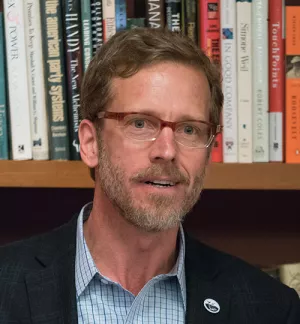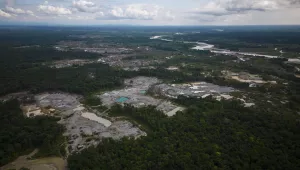Thank you Chairman Grijalva and ranking member Bishop for the opportunity to testify about the challenge of insuring integrity, both scientific and otherwise, at the Interior Department.
As a 7-yr senior executive at the Interior Department, and someone who stays in close touch with the scientists and experts still holding strong in the agency, I’d like to offer some insight into current conditions there. By way of example, I’ll recap how I was treated by agency leadership as I continued to call for strong actions to protect vulnerable Americans threatened by the impacts of climate change. I’ll conclude with some recommendations to address the problems we’re here to discuss.
When to Say “Enough?”
As Director of the Office of Policy Analysis, it was my job to understand the most recent scientific and analytical information regarding matters that affected the mission of the agency, and to communicate that information to agency leadership. I never assumed that agency leadership would make their decision based entirely upon that information, but I did assume that they would take it into consideration. That proved true for six years as my office provided the latest economic, analytical, and scientific information to leaders looking for sustainable solutions.
That all ended with the Trump political team, which, as I’ll describe, has sidelined scientists and experts, flattened the morale of the career staff, and by all accounts is bent on hollowing out the agency.
The career staff at Interior are not partisan in their work, they have a job to do and they do it well. Of course they know that an incoming Republican administration will focus on resource extraction rather than conservation, but they’ve pledged to support and defend the Constitution and advance the mission of the agency, not their own beliefs. They do their job.
But what if their leaders are trying to break down the agency? What if their directives run counter to the agency mission as dictated by Congress? What if political appointees are intentionally suppressing the science that indicates they are doing more harm than good, and putting Americans and the American economy at risk?
These days career staff have to ask themselves these questions nearly every day, or at least decide where their red line is. For me, the Trump Administration crossed it by putting American health and safety at risk and wasting taxpayer dollars.
Putting Americans at Risk
Rapid climate change is impacting every single aspect of the agency mission, and it was my job to evaluate and explain these threats. For example, as the federal trustee for American Indians and AK Natives, Interior is partially responsible for their well-being. With over 30 Alaska Native villages listed by the Government Accountability Office as acutely threatened by the impacts of climate change, it should be a top priority for Interior to help get these Americans out of harm’s way as soon as possible.
I was working with an interagency team to address this issue and speaking very publicly about the need for DOI to address climate impacts, and I paid the price. One week after speaking at the United Nations on the importance of building resilience to climate change, I received an evening email telling me I’d been reassigned to the auditing office that collects royalty checks from the oil, gas, and mining industries. I have no experience in accounting or auditing.
It was pretty clear to me and my colleagues that this was retaliation for my work highlighting Interior’s responsibility to address climate change and protect American citizens, so I blew the whistle.
I was not alone. Dozens of other senior executives received reassignment notices in that night’s “purge.” The ensuing Inspector General investigation revealed that the political team had broken every single one of the Office of Personnel Management guidelines for reassigning senior executives, and left no paper trail to justify their actions. They checked every box for management failure, including discrimination, as over a third of the reassigned executives were American Indian. Most importantly, in my view, they sent a signal that scientific information, and the needs of Americans in danger, were no longer a priority.
This is just one example of how the agency has been sidelining experts and science. Dr. Caffrey’s story is another. To make matters worse, there are many instances of the agency directly suppressing science. Among them are reports of Secretary Bernhardt ignoring and failing to disclose over a dozen internal memos expressing concern about the impacts of oil and gas exploration in the Arctic National Wildlife Refuge; former Secretary Zinke canceling a National Academy study on the health impacts of coal mining right before lifting a moratorium on coal leasing; Zinke instituting a political review of science grants, led by an old football buddy, that has bottlenecked research funding and led to canceled research.
The list goes on and on and other witnesses will provide examples. Not only does this group ignore science and expertise, they cross the line by actively suppressing it – at the expense of American health and safety, our public lands, and the economy. They are intentionally leaving their best player on the bench.
This is not what public service looks like.
Political appointees have shown no hesitation to reassign, relocate, or otherwise make life difficult for career employees – particularly the scientists and experts that they consider a threat. As I noted in my testimony to the Science Committee last week, agency scientists are self-censoring their reports and deleting the term climate change to avoid being targeted by political appointees, they are barred from speaking to reporters without advance permission from the agency, they face new barriers to attending the professional conferences that are part of the job, and their work is being incompletely communicated to the public, if shared at all. Secretary Bernhardt has even restricted telework despite its overwhelming success in achieving management outcomes; unable to treat professionals like professionals, he is now struggling to treat them like adults.
It goes without saying that this is a betrayal of the public trust and this culture of fear, censorship, and suppression is cheating American taxpayers.
Recommendations
These are dark times for science, the abuses have been taken to an extreme and I’m sure nearly everybody in this room agrees that we have to do better. More broadly, we’ve seen a collapse of ethics and integrity norms at the agency. The question is what can Congress do now to ensure that the federal science enterprise and the agency itself can rebound?
I have four recommendations, for starters:
- Support, strengthen, and pass the Scientific Integrity Act – it provides essential protections to prevent political interference in science and the harassment of scientists and experts. DOI’s existing policy is one of the best and yet it has proven of very little use in the face of hostile leadership. We need a law in place to put some teeth in these policies and provide reliable enforcement.
- Require that scientific integrity be one of several new ethics and integrity goals that must be included in the agency’s GPRA (Government Performance and Results Act) performance plan. The integrity and ethics failings among the political appointees at DOI are legion, and Congress should require that OMB do its job by collecting quarterly reports on DOI’s progress addressing these measures, and providing them to Congress in a timely fashion.
- The federal science enterprise depends upon a full complement of staff and scientists who keep it firing on all cylinders. Right now it’s barely running due to harassment and long-term vacancies. Congress should consider setting a ceiling for science vacancies, and, when that threshold is crossed, require that the agency prioritize science hires and make it easier to attract and hire new talent.
- Multiple lines of scientific evidence have definitively shown that we are in the early stages of a catastrophic climate crisis. Risks to American health and safety and the American economy are rapidly increasing, and the costs of adapting and responding to the crisis will soon skyrocket. Congress should require Interior to “climate-proof” it’s operations by a) placing an immediate moratorium on new fossil fuel leases on federal lands and sun-setting unused leases; b) re-purposing leasing staff to develop and implement a long-term carbon sequestration plan for public lands ecosystems; c) reinstating and implementing the agency’s climate change adaptation policy; and d) reinstating the National Park Service Director’s Order #100, generated in collaboration with the National Academy and at least one Nobel Prize laureate, which modernized NPS management approaches to address 21st century issues such as climate change.
Clement, Joel. “Oral Statement of Joel Clement Before the House Committee on Natural Resources.” July 25, 2019




